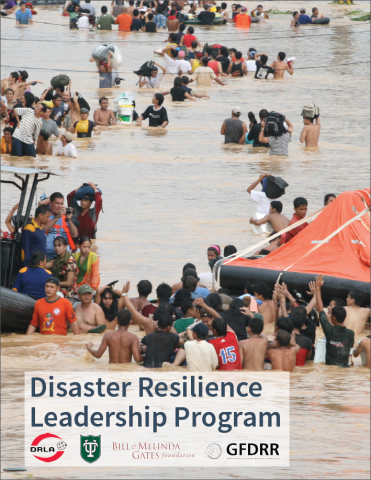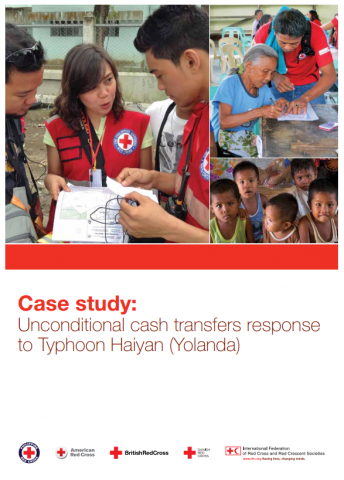IFRC Case Study: Unconditional cash transfers response to Typhoon Haiyan (Yolanda)


As a response to Typhoon Haiyan, the International Federation of Red Cross and Red Crescent Societies (IFRC) launched a preliminary Emergency Appeal to support the Philippine Red Cross in delivering humanitarian assistance to 100,000 families (500,000 people) within 18 months. A significant proportion of the immediate needs (food and non-food items (NFIs)) in the Emergency Appeal were to be met through cash-based modalities. It was anticipated that essential needs for 100,000 families would be met through a combination of in-kind and cashbased assistance, with 50,000 families benefiting from unconditional cash grants.
It is critical to note that providing unconditional cash grants to meet immediate needs at this scale within weeks of a disaster had never been attempted by the Philippine Red Cross or the IFRC. The largest emergency cash operation by the Philippine Red Cross to date reached 3,000 families in response to the multiple typhoons in the summer of 2013.
© International Federation of Red Cross and Red Crescent Societies, Geneva, 2014
